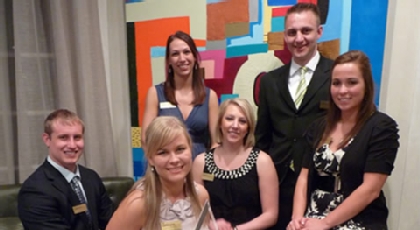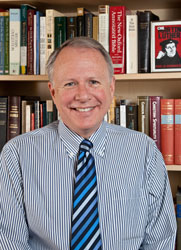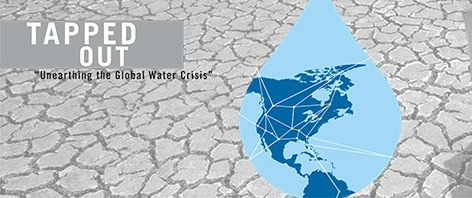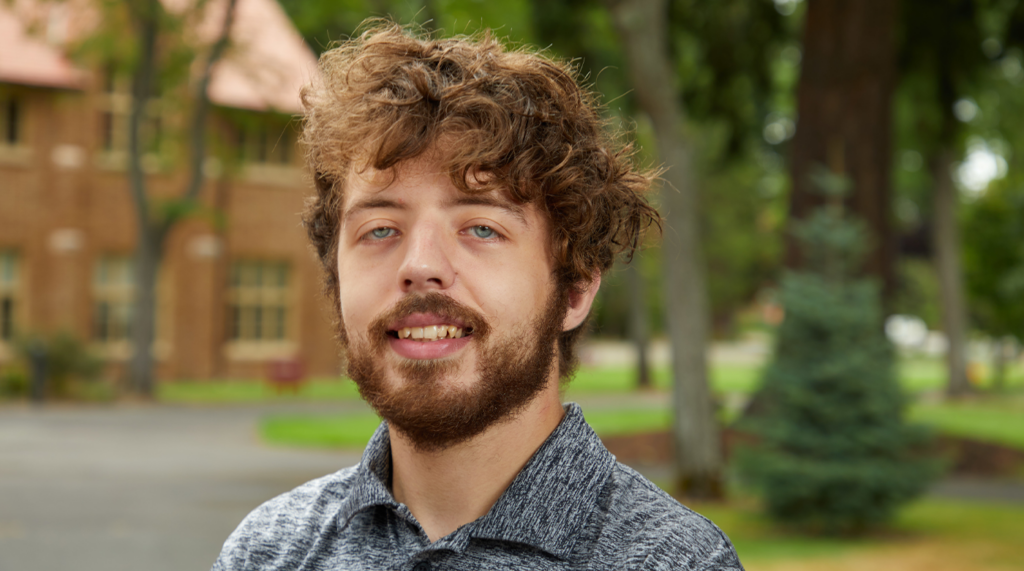Page 123 • (1,496 results in 0.029 seconds)
-
recycle until he came to PLU, but now he’s passionate about protecting the environment and sharing his knowledge with others. The geosciences and chemistry major plans to teach high school science. Under the guidance of Claire Todd, visiting assistant professor of geosciences and environmental studies, those in the program have spent a large portion of J-Term reviewing the evidence for recent climate change. They have been reviewing data collected by the Intergovernmental Panel on Climate Change (IPCC
-
(planting) from a farmer’s perspective.” Formed in 2000 by the Emergency Food Network, Mother Earth Farm is an eight-acre organic farm that produces more than 150,000 pounds of fresh fruit and vegetables each growing season. All the produce is distributed directly to local food banks and hot meal programs. Through service learning projects and the student environmental club GREAN, PLU students have volunteered at the farm. Working there is as much an educational experience as it is manual labor, Mares
-
away who meet artisans will have the opportunity build a relationship and possibly bring the items to store. “This is an outlet for students to get in contact with the community around us,” Valdez said. “Be that Parkland, or be that the global community.” Read Previous Grant supports environmental research Read Next Sustainability Fellows to tackle bikes, recycling COMMENTS*Note: All comments are moderated If the comments don't appear for you, you might have ad blocker enabled or are currently
-
the trash and figure out how much of it could have been recycled or composted. They also had to figure out the latent energy content of the trash, say if it were burned. The goal of the trash sort, which has been a regular feature of this class for about a decade, is to put the students on notice on just how much trash doesn’t need to end up at the landfill, said Barbara McConathy, PLU’s environmental services coordinator. “I think I want students to know that every bottle helps,” McConathy said
-

team was worth the work, Jacobsen said. And winning wasn’t the end goal for these students. “For me the end was just a confirmation,” Marchenko said. Read Previous Environmental center dedicated Read Next ‘Be the Spark’ ignites, unites PLU community COMMENTS*Note: All comments are moderated If the comments don't appear for you, you might have ad blocker enabled or are currently browsing in a "private" window. LATEST POSTS A family with a “Bjug” legacy of giving and service September 27, 2024 PLU
-

both places you can ‘follow your bliss,’ but here it is linked to things that are fundamental to who, as a university, we are.” He points to PLU’s mission statement, using its environmental language as an example – though he notes that any portion of it would be relevant. “When we talk about ‘care for the earth,’ it is linked to who we are as a university” Torvend said. “There is a moral and ethical connection [to such ideas] because of our middle name.” With the chair comes a certain level of
-

water, including drought, floods, population growth, and pollution, are resulting in new and innovative thinking. From Canada to Texas, and from Washington, D.C., to the Gulf of Mexico, the team discovered stories of drought, water mismanagement and water scarcity in unexpected places. During research and production of the film, the students conducted dozens of interviews, meeting with citizens; farmers; activists; officials from the United Nations, the U.S. Environmental Protection Agency and the
-

corporate social responsibility, truth in advertising, meaningful work, and environmental protection. Multicultural Perspectives in the Classroom – Dr. Vidya Thirumurthy – EDUC 205 (A – 4 credits) Issues such as ethnicity, gender, disability, racism, and poverty examined through field experiences in Tacoma public schools. Writing Tacoma – Dr. Jason Skipper – ENG 385 (WR – 4 credits) Creative nonfiction writing course featuring place-based writing methods. “We anticipate students falling in love with
-

podcast.” The two shortly found themselves quarantined together, and the idea continued to develop until they released their first episode in late April. “We haven’t really done anything like that before, and we had always kicked around the idea,” said Sager. “For us, it never really solidified until we realized the need, and how much time we have on our hands.”The Capstonavirus series features students from many disciplines, including music, chemistry, history, geoscience, environmental studies, and
-

before, but on a professional level,” Lindhartsen said. In just the 30-year history of the individualized major, PLU students have designed degrees in digital media, Indigenous studies, global health, and environmental education. To do this, students draw from PLU courses and develop their expertise through extensive and rigorous conversations and planning with a committee of faculty who support and guide them. “You take courses from all around the university, as well as experiential learning, like
Do you have any feedback for us? If so, feel free to use our Feedback Form.


